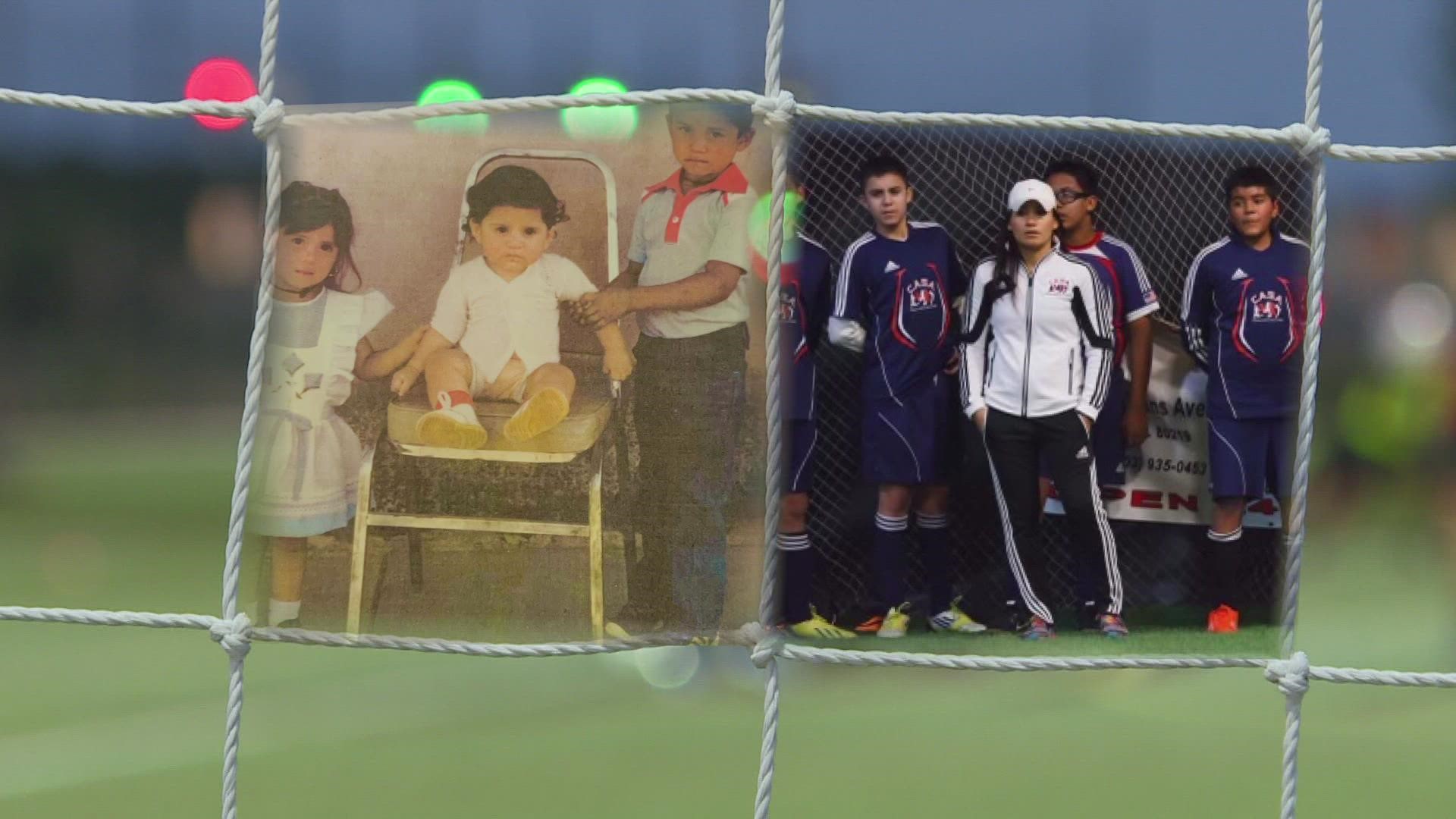AURORA, Colo. — As the sun sets over Aurora Sports Park, a few soccer fields fill with kids – from young children to teenagers – bearing the same club name on their jersey: CASA FC.
The different generations of players training across the pitch represent the growth of the club started in 2008.
"It started very small, but with a very, very big idea," said Maribelia Avalos, founder and executive director of CASA FC.
The club started with eight players and has grown to hundreds of players across all ages and skill levels of youth soccer players, with an emphasis on affordability. But for Avalos, starting the club wasn't just about the game.
"That is the ultimate goal, is not only a sense of direction, but it is of sense of how you become a great leader in our community and all around a good human," she said.
Part of that vision included providing a pathway to college through what's long been known as "the beautiful game."

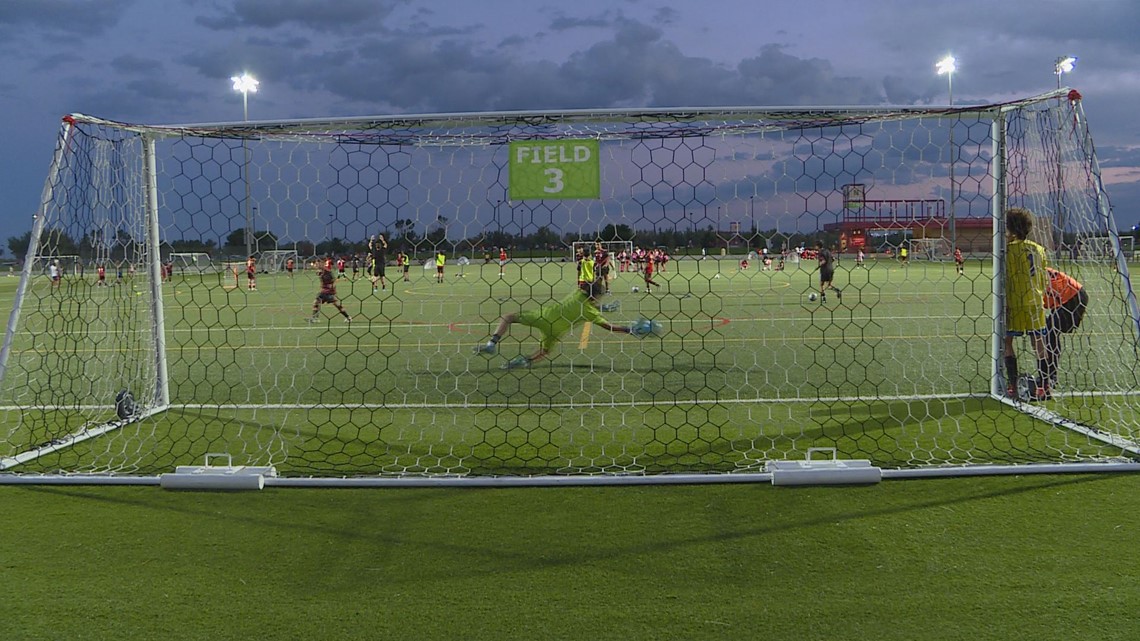
Starting small, but mighty
Sitting in her office, Avalos reflected not only on the journey the club has so far taken, but her own. She came to the United States from Michoacan, Mexico, and graduated from Adams State University in 2008.
Before that, she founded MASFIT, a gym that specializes in strength and conditioning for the public. But soccer had always been the sport of her choice, which also sparked an idea.
"The whole thing was to get our Latino kids to get involved in higher-level competition," she said. "Because I always thought that our community was missing out on higher competition in our state."
She said she believes part of that has to do with affordability. In some clubs that offer high-level, competitive youth soccer, the families of youth players could pay in the thousands per season.
Avalos said she's been able to make CASA FC one of the most affordable clubs that offer high-level youth soccer.
"I would say 10% of what everybody charges, probably that's what we charge," she said, later adding that competitive leagues under CASA FC charge a couple hundred dollars per season.

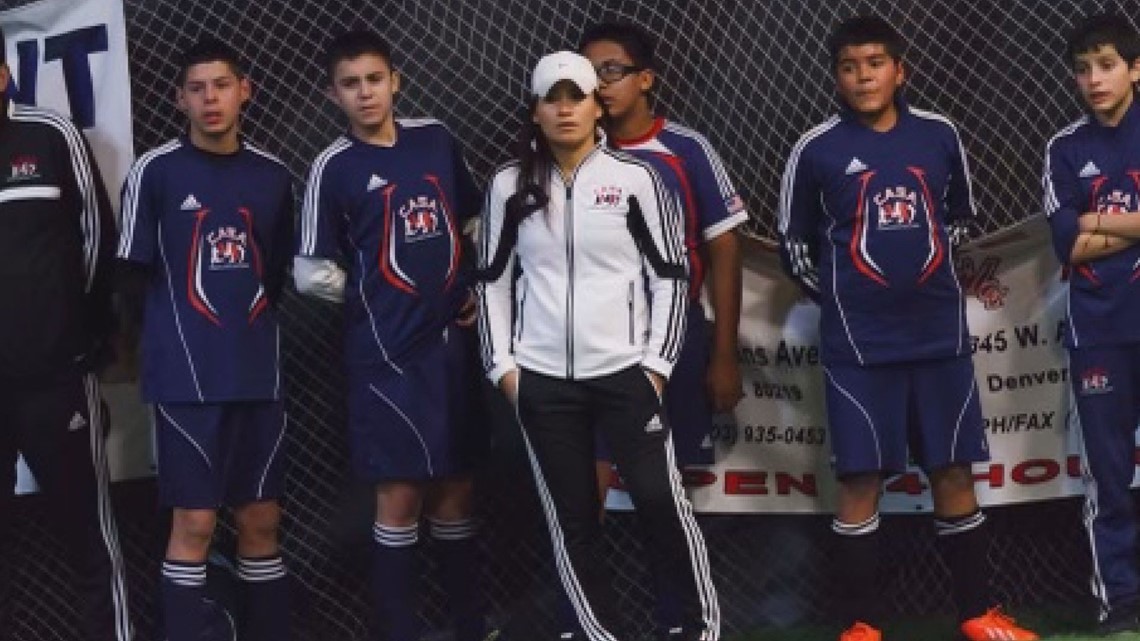
Avalos estimates about 90% of the club's players are Latino, with about 80% from underserved communities in the Denver metro area.
"Do we welcome everyone? Of course we welcome everyone. Everyone is welcome to our club. But we are inner-city. We started the club in inner-city Denver," she said.
Across Colorado, the percentage of Hispanic players makes up about 30% to 40% of all players, and the adults are closer to 70% to 75%, according to Nate Shotts, CEO of the Colorado Soccer Association.
"This includes all players whether they play with us or other leagues across Colorado," Shotts said an email. "Colorado Soccer works to support each of these clubs in their growth and development. Most of our Hispanic clubs do a great job in helping serve those players that want to play at the highest level and development of many young players."
For Avalos, the club has seen its successes, but her goal is to create a pathway toward college – and not just for soccer.

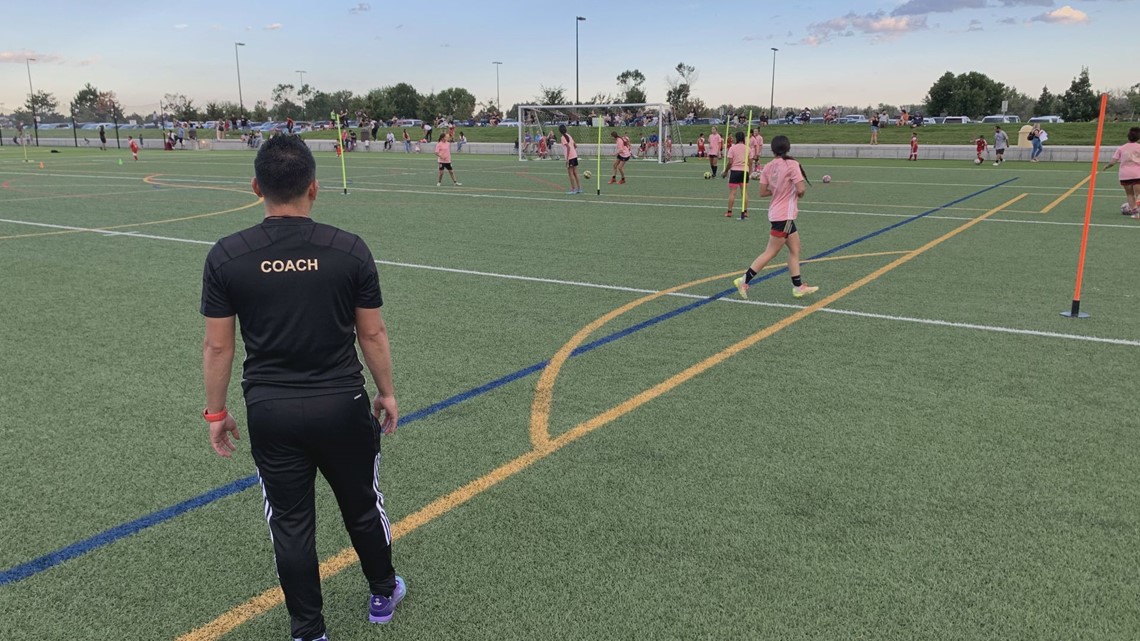
A positive path
Sitting on a porch in Denver, 22-year-old Jesus Granillo reflected on his time with CASA FC.
"They were starting a club, and we were kind of like the first group that they were going to start off with. And me and my couple friends decided to join," he said. "Since it was like very local, like, they didn't have to travel too much. We thought it was a good fit."
Granillo was just 8 years old when he joined CASA's original team of eight players. Now the Denver native and graduate of Duke University credited his accomplishments to the access he was given to the game and the lessons it taught him.
"It's not always going to be your way, but you always got to be doing it the best of your ability," he said. "That's kind of what I what I reflect on getting back from from this experience. I think what it taught me the most was just being responsible."
He also gave credit to his parents, who came to the United States from Chihuahua, Mexico.
He added that the affordability aspect played a big role in his time with CASA FC.
"Our parents came here at the age of 17, started making their lives, stuff like that. They don't always have the most resources and time to give their kids the opportunities [that] other kids have the privilege of having," he said. "I think what it taught me the most was kind of just being responsible."

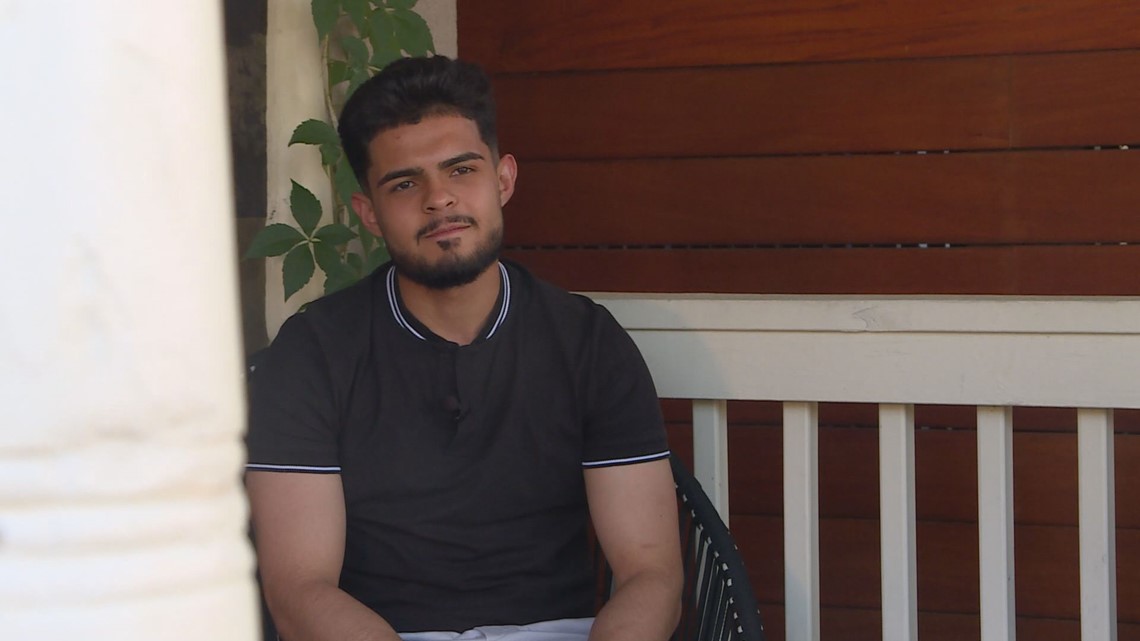
For the players currently at the club, like 12-year-old Matthew Ruiz, the game has been therapeutic.
“I don’t need to think about anything else – it’s just me and my team and my coach," he said. “It gets my mind off of, like, bad stuff that happened in my life."
Matthew was at a different club before but said his experience thus far with CASA has helped him grow as a player.
“It just makes me feel like happy," he said, crediting his coaches for helping guide him.
“They teach me about life lessons and everything, pretty much," he said.

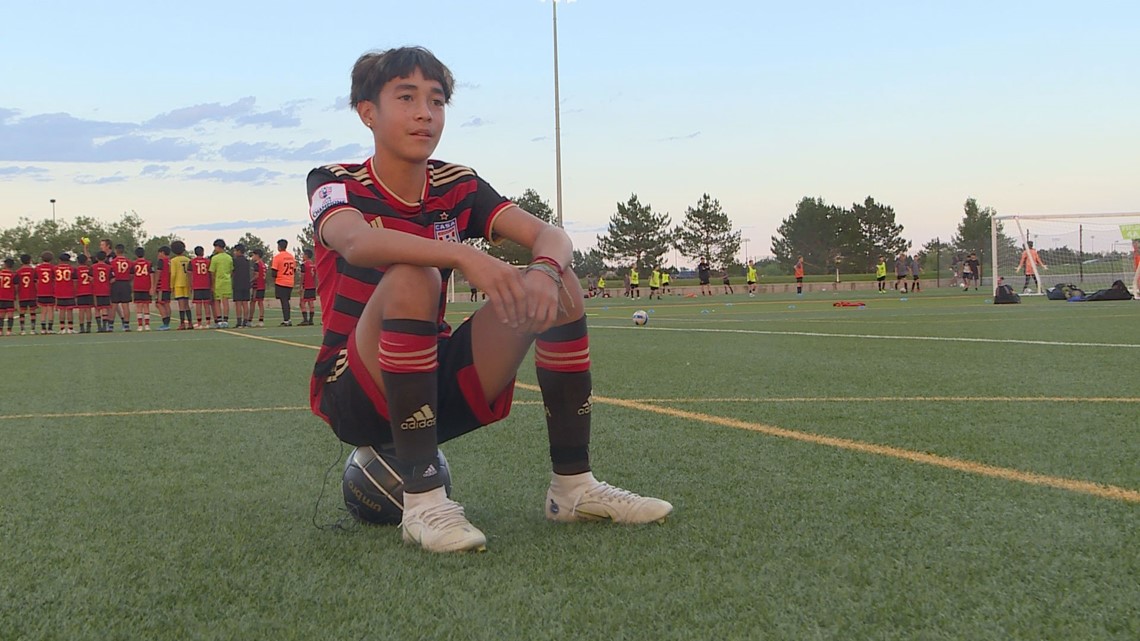
For 14-year-old Rubi Dominguez, who has played with the club for the past few years, her teammates and coach have taught her a lot, not only as a player, but as a person, too.
“I feel happy being with my teammates and being able to play ball with them and connect," she said.

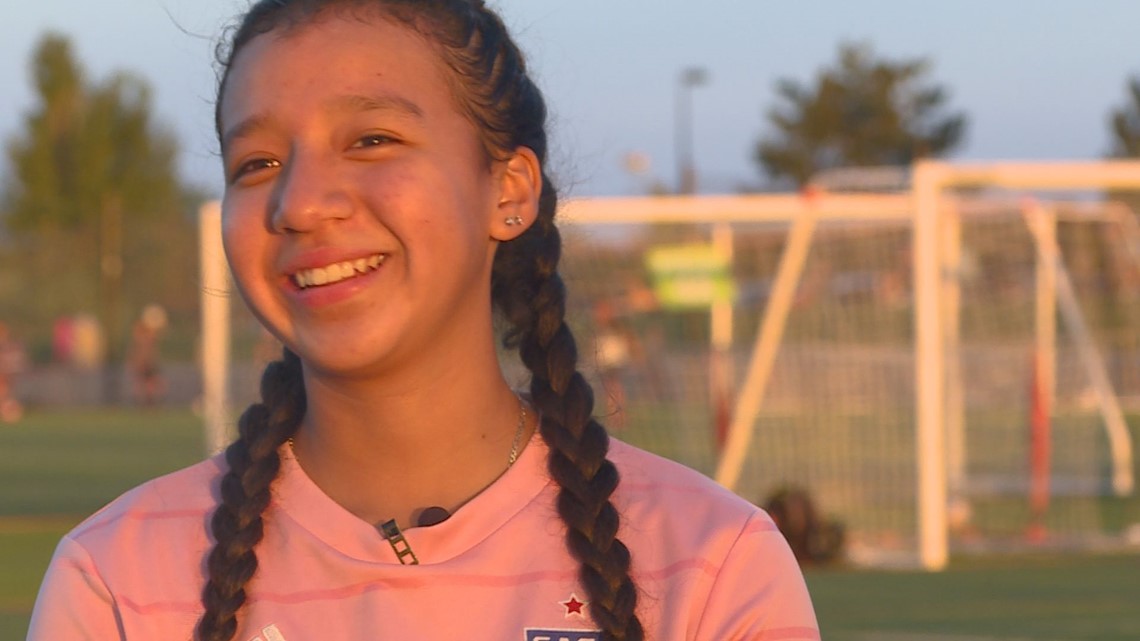
Going beyond the field
Avalos said the mission of the club is not only to create great soccer players, but great people, too.
"And if you are a good teammate, you a good coworker, right? And it will help you throughout life. So those are skills that we teach them now as young kids that later on they are going to use all of their lives," she said. "So the biggest part is creating good humans, good leaders and somebody that is going to uplift our community."
Avalos said she believes that providing access to the game at a high level for youth allows the kids to build bonds.
"But we don't always win in life. We don't. So you translate that into life. When you lose games, how does it feel? But you learn the most from it so that you translate into life," she said.
Avalos also said the access provided to kids has propelled many to attend college.
"And at the end of the day, that is our ultimate goal – for our kids to go to college – and I would love to say like, 'I want all our kids to play college soccer,' but not all of them will, right?" she said. "And some of them will go to college because of the passion. And I'd be proud because of that."
As for the future of the club, Avalos said she hopes it continues to grow.
"So my job has always been to fight for our kids, to fight for my community and make sure that they are able to play in the places where we were originally founded," she said. "Our community should always be proud of who we are. Never put your head down. Be proud of who you are. Be proud of your culture."
CASA FC works to give scholarships to its players to cover costs. To inquire about this, click here.
SUGGESTED VIDEOS: Hispanic Heritage

